
The Summer Of 1967 (posted 6/25/07)

Note: I wrote this piece in June, 2007. The purpose was to show that it is extremely difficult to predict who will be the nominated candidates a year or more before the national conventions. While the post was written with the 2008 election in mind, the fact remains that prognosticators in print, on television or the internet have no clearer crystal ball than you or me. Enjoy.
Whenever I hear pundits declaring who the next president will be, I tune out. It's simply too early to make predictions. Don't believe that? Just travel back 40 years.
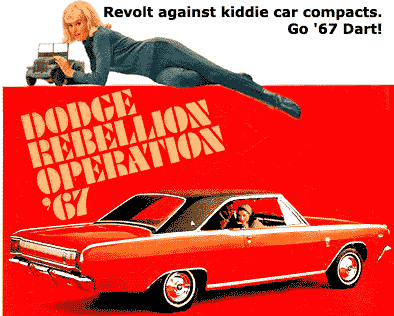
Having graduated from college in 1965, I was in the early stages of my business career in '67. Unlike the "historic" clips that are run on television these days, hippies were not everywhere. One rarely saw people on the street dressed like the Mommas & Pappas. Some of us grew moderate-length sideburns though. (Oh, the horror!)
People went about their daily lives just like today, working, shopping, drinking and watching television. Except the water cooler question was: "Did you see the finale of 'The Fugitive' last night?" Rather than: "Did you see the finale of 'The Sopranos' last night?"
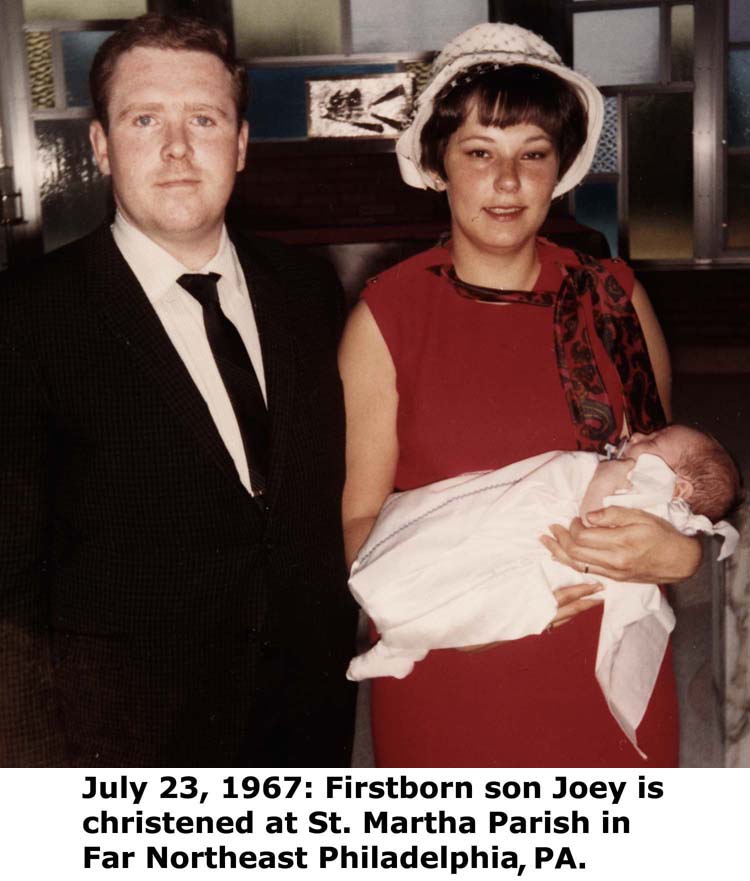
In the summer of 1967, we had a new baby and were living in an apartment and were saving for a house. I had sold my Corvette and - being a responsible new dad - was tooling around in a new, economical and reliable 1967 VW Beetle.
I remember 1967 well - the politics and the events. Here's what it was like:
In the summer of 1967, the conventional wisdom was that President Johnson would stand for reelection. The Republicans were in disarray after the resounding '64 defeat of Barry Goldwater.
Many pundits thought that, in 1968, the moderate liberal Nelson Rockefeller would be a good GOP counter to the policies of Goldwater and serious competition for Johnson. Richard Nixon was around the fringes but most did not take him seriously after his 'You won't have Dick Nixon to kick around anymore' speech a few years earlier.
Then everything began to change.
In November, Eugene McCarthy announced that he would challenge President Lyndon Johnson for the Democratic Party's nomination on an antiwar platform. In early 1968, President Johnson began to run for reelection. But, in the New Hampshire primary on March 12th, McCarthy surprised experts by winning 42% of the Democratic vote, almost beating the incumbent president.
McCarthy had no time to savor his near-victory because, on March 16th, Robert F. Kennedy declared his candidacy stating (taking a jab at Johnson, whom he despised), "I run because I am convinced that this country is on a perilous course and because I have such strong feelings about what must be done, and I feel that I'm obliged to do all I can." McCarthy supporters angrily denounced Kennedy as an opportunist. Bobby's entry split the antiwar faction in two. Two weeks later, Lyndon Johnson withdrew from the 1968 race.
On April 4th, Martin Luther King was assassinated. Riots broke out in 60 cities. Robert Kennedy gave an impromptu and impassioned speech at an Indianapolis campaign stop, quoting poetic verse and declaring, "For those of you who are black and are tempted to be filled with hatred and mistrust of the injustice of such an act against all white people, I would only say that I can also feel in my own heart the same kind of feeling. I had a member of my family killed ... he was killed by a white man."
Despite a large black population, there were no riots in Indianapolis that night.
Whether Bobby's speech was ghost-written, contrived or purely extemporaneous, it evoked the Kennedy Magic and, had the election been held that week, Robert F. Kennedy would have surely been the next U.S. president.
On June 4th, McCarthy lost the important California primary to Senator Kennedy. Moments after giving his victory speech, Bobby Kennedy was fatally shot at a Los Angeles hotel.
On a personal note, I remember Bobby Kennedy's very somber funeral train heading down the four-track corridor from New York to Washington. It had a lone black GG-1 electric locomotive as a pilot followed by the train itself, which was pulled by two big black GG-1s, newly painted in Penn Central livery. I got a glimpse of the train from the Street Road overpass near Philadelphia while making one of many trips in my newly-purchased 1967 Volkswagen Beetle, moving stuff from our one-bedroom apartment to our brand new (first) house. I spent that entire day hauling breakables, after removing the passenger and rear seats from the VW.

The Democratic party was in shock and disarray. At the infamous August 1968 Democratic Convention in hot, humid and riotous Chicago, McCarthy only received 23% of the 2,622 votes. Vice President Hubert Humphrey, a former Senator from Minnesota who replaced LBJ as the candidate of the party establishment, got the nomination on the first ballot with 67%.
Meanwhile, on the Republican side, a pre-convention Gallup poll showed Nixon with 39% support, followed by George Romney (Mitt's dad) with 25%. However, in a slip of the tongue, Romney told a news reporter that he had been "brainwashed" by the military and the diplomatic corps into supporting the Vietnam War; the remark led much ridicule in the national news media.
By early 1968, Romney became opposed to further American intervention in Vietnam and had decided to run as the Republican version of Eugene McCarthy. Romney's support faded and he withdrew from the race in February.
Nixon won a resounding victory in the New Hampshire primary, winning 78% of the vote. Antiwar Republicans wrote in the name of New York Governor Nelson Rockefeller, who received 11% of the vote and became Richard Nixon's de facto challenger. Nixon led Rockefeller in the polls throughout the primary campaign. Former vice-president Richard M. Nixon, once derided by pundits and written-off by the GOP, became the Republican candidate.
Nixon campaigned on a theme to restore "law and order," which appealed to many voters angry at the hundreds of violent black riots that had taken place across the country in the previous few years. Vice-President Humphrey criticized the "law and order" issue, claiming that it was a form of racism.
Nevertheless, severe rioting in Detroit and Washington, D.C. had forced President Johnson to call out the U.S. Army to protect lives and property. Smoke from burning buildings a few blocks away had drifted across the White House lawn. Voters noticed and "law and order" played well to them.
After the Democratic Convention, Humphrey trailed Nixon by double-digits in most polls, and his chances seemed hopeless. Calling for "the politics of joy" and using the still-powerful labor unions as his base, Humphrey fought back. He was nicknamed The Happy Warrior.
The '68 election also featured a strong third-party effort by former Alabama governor George Wallace. Wallace's campaign was frequently accused of promoting racism but he became a formidable candidate.
Torn by dissent, the Democrats lost the Presidency in November - even though Wallace undoubtedly took some of the conservative Republican vote.
Nixon won the popular vote with a plurality of 512,000 votes - a margin of about one percentage point. In the electoral college, Nixon carried 32 states with 301 electoral votes, to Humphrey's 13 states and 191 electoral votes and Wallace's 5 states and 46 electoral votes.
In January 1969, Richard Milhous Nixon was sworn in as the next U.S. president. In the summer of 1967, such an event was unthinkable ... or at least unlikely. Now you know why I don't pay much attention to politics early in the primary election season.
|
Remember When: 1967
|
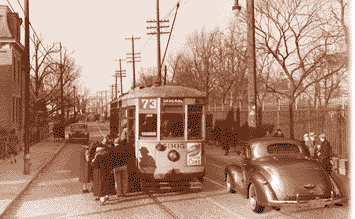 In 1967, the continued presence of American troops in Vietnam increased further; a total of 475,000 were serving in Vietnam. President Johnson asked for a 6% tax increase to support the Vietnam War. Peace rallies multiplied as the number of protesters against the war increased. In 1967, the continued presence of American troops in Vietnam increased further; a total of 475,000 were serving in Vietnam. President Johnson asked for a 6% tax increase to support the Vietnam War. Peace rallies multiplied as the number of protesters against the war increased.
Boxer Muhammad Ali was stripped of his boxing world championship for refusing to be inducted into the US Army.
Thurgood Marshall became the first black justice on the Supreme Court. And Elvis Presley got married in May.
In the Middle East, Israel also went to war with Syria, Egypt and Jordan in the six-day war and when it was over Israel controlled and occupied a lot more territory than before the war.
During the summer, cities throughout America exploded in rioting and looting the worst being in Detroit in July when 7,000 National Guard were bought in to restore law and order on the streets. 2,000 people were injured and 5,000 were left homeless.
Expo 67, Montreal's World's Fair, opened in Canada at Ile Ste-Hélène on the St. Lawrence River. The centerpiece of this 1967 fair was the U.S. pavilion - covered by a gigantic, 20-story, see-through Plexiglas geodesic dome, designed by R. Buckminster Fuller. The fair hosted over 50 million visitors in six months.
Apollo 1 was destroyed in a flash fire in the command module while on the launch pad, killing 3 astronauts.
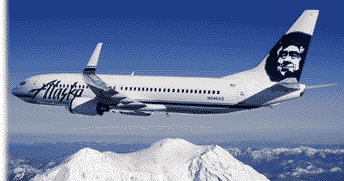 The first Boeing 737 took its maiden flight. The world's first heart transplant operation was performed by Dr. Christiaan Barnard in South Africa. The first Boeing 737 took its maiden flight. The world's first heart transplant operation was performed by Dr. Christiaan Barnard in South Africa.
In England a new type of female model named Twiggy became a fashion sensation and mini skirts continued to get shorter and even more popular with a short-lived fashion being paper clothing. Coca-Cola launched Fresca. Amana offered the first compact microwave oven, with a price tag of $475. New words included body stocking, boutique, hippie, scam, swap meet, teeny-bopper and think tank. Maytag introduced its lonely repairman television commercial, starring Jesse White.
In 1967, the National Transportation Safety Board (NTSB) was created to regulate the safety of passenger automobiles. American Motors Corp. lost $76 million due to poor sales. Dodge dropped from 5th to 7th place in U.S. auto sales, despite restyled compacts and intermediates. Shelby Mustangs could now be had with a 428 cubic-inch V8 engine. Three Mustang competitors - the Mercury Cougar, Chevrolet Camaro and Pontiac Firebird - made their debuts. Cadillac introduced the handsome front-wheel drive luxury coupe, the Eldorado.
Chemical manufacturer Rohm & Haas introduced a concept car, Explorer IV, featuring applications of the company's chemical additives and plastic products. It was built on a Buick Riviera chassis.
New television shows included 'The Fugitive', 'The Wild, Wild West', 'The Dean Martin Show', 'A Family Affair' and 'The Monkees'.
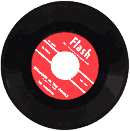 Top songs of 1967 were 'To Sir With Love' (Lulu), 'The Letter' (The Box Tops), 'Ode To Billy Joe' (Bobbie Gentry), 'Windy' (The Association), 'Light My Fire' (The Doors), 'All You Need Is Love' (The Beatles), 'A Whiter Shade Of Pale' (Procol Harum) and 'Can't Take My Eyes Off You' (Frankie Valli). 'Up, Up and Away' by the 5th Dimension won several Grammy awards. The Beatles' first concept album, 'Sgt. Pepper's Lonely Hearts Club Band', made its debut. Top songs of 1967 were 'To Sir With Love' (Lulu), 'The Letter' (The Box Tops), 'Ode To Billy Joe' (Bobbie Gentry), 'Windy' (The Association), 'Light My Fire' (The Doors), 'All You Need Is Love' (The Beatles), 'A Whiter Shade Of Pale' (Procol Harum) and 'Can't Take My Eyes Off You' (Frankie Valli). 'Up, Up and Away' by the 5th Dimension won several Grammy awards. The Beatles' first concept album, 'Sgt. Pepper's Lonely Hearts Club Band', made its debut.
Top 1967 movies included 'The Graduate', 'Cool Hand Luke', 'Bonnie and Clyde', 'The Dirty Dozen' and James Bond's 'You Only Live Twice'.
Deaths included nuclear physicist J. Robert Oppenheimer, soprano Geraldine Farrar, author and poet Carl Sandberg, humorist Dorothy Parker, jazz musician John Coltrane, singer Otis Redding, bandleader Paul Whiteman, comic actor Bert Lahr, bosomy actress Jayne Mansfield and actor Spencer Tracy.
In the World Series, the St. Louis Cardinals beat the Boston Red Sox after seven games. 4-3.
|
Other Pages Of Interest
copyright 2007-21 - Joseph M. Sherlock - All applicable rights reserved
Disclaimer
The facts presented in this website are based on my best guesses and my substantially faulty geezer memory. The opinions expressed herein are strictly those of the author and are protected by the U.S. Constitution. Probably.
Spelling, punctuation and syntax errors are cheerfully repaired when I find them; grudgingly fixed when you do.
If I have slandered any brands of automobiles, either expressly or inadvertently, they're most likely crap cars and deserve it. Automobile manufacturers should be aware that they always have the option of trying to change my mind by providing me with vehicles to test drive.
If I have slandered any people or corporations, either expressly or inadvertently, they should buy me strong drinks (and an expensive meal) and try to prove to me that they're not the jerks I've portrayed them to be. If you're buying, I'm willing to listen.
Don't be shy - try a bribe. It might help.
|
|

